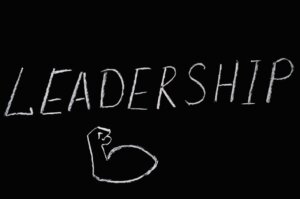I spent July 4th with my brother – an oil man his whole career. Over the weekend I got a lesson in hydrocarbon geology that seems useful for leaders.
Geology of Talent
It turns out that gas and oil doesn’t sit underground in huge lakes waiting to be pumped out. Who knew? I thought: dead trees and vegetation, eons of new soil and rock, pools of oil and gas, “sip” it out with an oil rig. Instead, there are “lakes” of porous rock which hold the oil like a sponge, stuck under a layer of impervious rock that won’t let it move. Only when a fracture occurs, or a well is drilled, does the oil “flow” – always following the path of least resistance down a pressure gradient.
Like gas and oil, the business news is full of talent pool crises and shrinking reserves. But, what can you do about it? Do you make a Deepwater Horizon play and bring in external executive teams at high cost and unknown risk? Or is there another way to bring talent to the surface?
As a leader you have an identified pool of talent in your organization along with a reservoir of untapped talent, waiting to be “fracked” and brought to the surface. Typically, we think of talent “pools” as organizational lakes of capacity that are continuously sucked upwards when we need new energy in marketing, innovation in R&D, or to fill a power gap in finance. But what if the accessible pool is actually low hanging fruit – talent (oil) that has already found its way to the surface through the semi-permeable layers of organizational culture, old-boy’s networks, and annual reviews.
Fracking the Organization
As I now understand it, having only completed oil exploration 101, one resolution to the dilemma of stuck oil is to drill a horizontal shaft off of the vertical well so it passes through the porous oil reservoir. Then you “frack” the rock and let the oil flow to you so you can pump it vertically to the surface. Ignoring all the political and ecological arguments for the moment, can this provide business leaders with a technique for adding value to their company?
Back to your organization, what upcoming project (ready to be assigned to an identified high-potential) can you use to frack your organization? You need a project that drills through the established talent development process (the impermeable layer) and tunnels horizontally across the deeper layers of the organization and into the reservoir of talented people who can’t get promoted because “there is nowhere to go”. The low pressure solution for them is to flow out of your organization and into another one. Use your project to frack the talent reservoir – look for those attracted to the challenge, fresh faces hungry for the chance to contribute. Let those who show up strut their stuff, provide them with personal mentoring, ask for input and ideas, and listen. See who shows up, then give them the ball and let them run. Make your project low pressure enough to encourage flow toward you, this way you won’t attract just the highly competitive, frustrated, or jaded folks already hammering on the glass ceiling. A couple of projects a year and your Talent Well will keep the Talent Pool full.
Tips for Fracking
- Look for Know-Why: It is easy to find organizational know-how, can you find those that know-why? People that know-why better anticipate and respond to challenges and opportunities. They are quicker to understand the context of the situation and identify who can contribute to the solution. Individuals who know-why use the golden circle and act from purpose, aligning how and what to why.
- Find hidden networks: Once you identify your reservoir of talent ask those who come forth who they know, who they talk to, and who they seek advice from. These patterns of local interaction show you the size of your reservoir and give you clues where to frack it with the next project. Try to establish a community of practice that supports the flow of your Talent Well.
- Train leaders already in the Talent Pool: What better way to promote a culture of leadership than to let acknowledged leaders identify and develop those below them? As future leaders they need to grapple with the frustration of those trapped in an organizational stratum that appears to have no upside. Learning to lean into tough decisions, navigate uncertainty, and inspire others will help their career as well as that of others. Coach them to maintain the Talent Well and your pools of reserves will never run dry.
 Sections of this topic
Sections of this topic
















